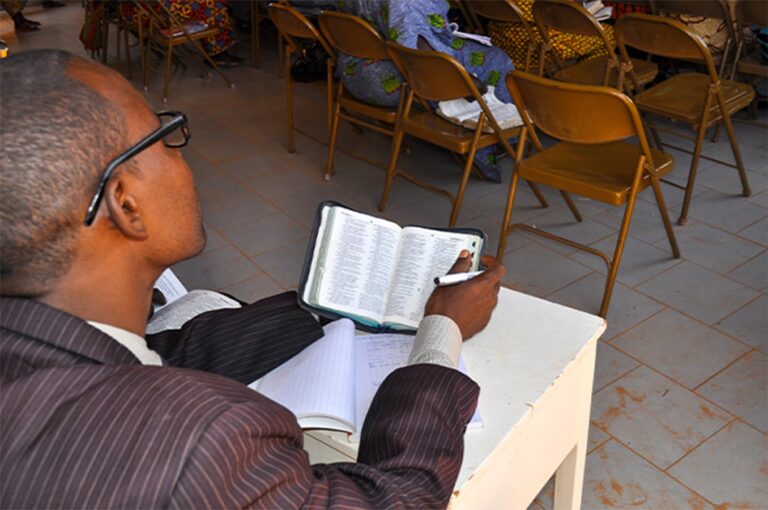PAUL’S APOSTOLIC TEAM
Let’s examine an important issue in many parts of the Body of Christ. Biblically, “What is the role of women in the church?” As a prophetic reformer, I have an assignment. I’m trying to write my vision and make it plain so leaders can run with it! I’m for church growth, evangelism, and the Great Commission!
Here are the facts we can readily see:
- One-third of Paul’s apostolic team were women in the ministry.
- Women were empowered by the Holy Spirit in the Upper Room.
- We’ve failed to disciple the next generation of leaders.
- Half our members remain benched, idle, not equipped, not sent out.
- Apostles and Prophets are emerging to help Pastors.
- Existing church structures must develop new models.
- Five-fold ministers must re-define what success looks like.
Today, I will discuss one topic. In the Bible, one-third of Paul’s ministry team were women!
Wait a minute!
I thought Paul wrote in two different places that women could not teach in church? In fact, they must keep silent! What’s going on here?
Good question!
To solve this puzzle, we need to look at some historical things that require a little bit of perspective. That, AND some serious comparisons of several Scriptures. Later, I’ll examine the two problem passages being used to put limits on women. Then you’ll see as I have – that those verses do no such thing!
First, let’s look at the workers who made up Paul’s roving apostolic team. (Reference: Romans 16:1-7) Thirty team members are listed. Notice the careful terminology Paul used for his female coworkers.
“I commend unto you Phoebe our sister, which is a servant of the church which is at Cenchrea: That ye receive her in the Lord, as becometh saints, and that ye assist her in whatsoever business she hath need of you: for she hath been a succourer of many, and of myself also. Greet Priscilla and Aquila my helpers in Christ Jesus: Who have for my life laid down their own necks: unto whom not only I give thanks, but also all the churches of the Gentiles. Likewise greet the church that is in their house. Salute my well-beloved Epaenetus, who is the first fruits of Achaia unto Christ. Greet Mary, who bestowed much labour on us. Salute Andronicus and Junia, my kinsmen, and my fellow prisoners, who are of note among the apostles, who also were in Christ before me.”
Romans 16:1-7 KJV
Paul lists 29 persons by name in this chapter. Ten of them are females, approximately a third of his list of coworkers.
In addition to these ten, more women associated with Paul are listed elsewhere in the New Testament and also identified as “fellow workers.” Four of them were house church leaders:
- Lydia (Acts 16:14)
- Chloe (1 Corinthians 1:11)
- Nympha (Colossians 4:15), and
- Apphia (Philemon 2)
These women were pastors.
Here in Romans 16, notice that four women listed by Paul are said to have “worked very hard in the Lord.” They are Mary, Tryphaena, Tryphosa, and Persis. (vs. 6 and 12) The phrase “work very hard” was commonly used by Paul for the special labor of the Kingdom in new territories. Paul frequently used this same phrase to describe his own apostolic ministry. The fact is – Apostles work hard!
See the following Scripture references:
- 1 Corinthians 4:12, 15:10
- Galatians 4:11
- Philippians 2:16
- Colossians 2:9
- 1 Timothy 4:10
- Acts 20:35
Paul used this same term to describe the hard work of other ministers of the Gospel. Each time he used it, he stressed the need for respect for and submission to these special workers.
- 1 Corinthians 16:15-16
- 1 Thessalonians 5:12
- 1 Timothy 5:17
Two women were singled out as having shared Paul’s “struggle in the cause of the Gospel.” They were Euodia and Syntyche. (Philippians 4:3) Another woman was listed in Romans 16 – Phoebe. She may have been more than a deacon, but she was at least that. The phrase, “a servant of the church,” is usually taken by many to mean Phoebe was a deacon, since the root for the word is diakonos. However, this same word is frequently applied to those who were strategic servants of the word, that is, apostles. For example, Paul used this word for himself in Colossians 1:23 and 25. He names himself first as a servant of the Word, then as a servant of the church. In both cases, the word is diakonos. Here is an apostle proudly identifying himself as a servant, just like he did for Phoebe.
Phoebe was probably the Gospel worker who was entrusted by Paul with the letter that he sent to the church at Rome. Paul not only commends her as a servant of the church, but also acknowledges that she is a “helper of many” (NASB) or “benefactor” (NRSV). Phoebe was a valued and trusted member of Paul’s team. The Greek word “benefactor” if used as a noun, is prostatis. It appears this once in the New Testament. In secular Greek, this word was used by pagans and Jews as a relatively strong term for leaders. Paul often used the verb form, proistemi, in connection with elders or leaders in the church.
- Romans 12:8
- 1 Thessalonians 5:12
- 1 Timothy 3:4, 5, 12
In the light of Paul’s careful use of language, it appears Phoebe, a woman, was a significant leader in the New Testament church and highly valued as a member of his apostolic team.
Notice that Aquilla and Priscilla are called “helpers” or “fellow workers.” It is Sunergos in the Greek. It means “companion in labor,” or “co-laborer” or “work-fellow.” We get the modern English word synergy from this same root word. Epaphroditus, an apostle, is called by the same identifying title.
“But I thought it necessary to send to you Epaphroditus, my brother and fellow-worker and fellow- soldier, who is also your messenger (apostle) and minister to my need.”
Philippians 2:25
In other words, it was common for Paul to name co-workers, other apostles networking with him or laboring alongside his team, as “fellow workers.” His apostolic team included respected co-workers, many of whom who were women. Women were not second-class team members. There was no hint of any limitations being placed on them. Women were addressed with respect and trust just like any man on his team. Later, we can study apostolic teams.
Look at one married couple – Priscilla and Aquila. They became key players on Paul’s team. Of the several times they are named, the wife was often listed first, implying she had greater importance in the ministry. Order is usually important in the Scriptures, implying who had the lead. Notice, the order of names changed between Barnabas and Paul after Paul began to move powerfully in his calling and as an apostle.
See the following Scriptures for reference:
- Acts 12:25
- Acts 13:2
- Acts 13:42
Paul once referred to Priscilla in the diminutive, Prisca, a token of familiarity or affection. She helped teach Apollos, an eloquent preacher and a man who was later listed among the apostles. Some scholars think that Apollos wrote the Book of Hebrews, perhaps with the help of Priscilla. We know that Apollos was eloquent in the Old Testament scriptures. Whoever wrote it, they were extraordinarily knowledgeable about the Old Testament, and he (or she) had a high revelation of Jesus, especially His eternal role as our great High Priest after the order of Melchizedek.
Paul says Priscilla and Aquila had a church in their house. If she was the prominent minister in this husband-wife team, then that implies that she was the pastor or at least co-pastor of this house church. (Romans 16:5) She certainly played a major role, perhaps the key role, in this husband-wife ministry team, and they were often part of Paul’s apostolic team.
This helps to answer the question, “Can a woman pastor a church?” The correct answer is, “Yes!” Pastoring in the New Testament meant feeding and guarding God’s flock, representing Jesus as shepherd, working under an apostle’s supervision. House churches multiplied rapidly in the early church era.
Regardless of church size, a qualified, called Christian woman who knows God’s Word and is anointed by the Holy Spirit may certainly pastor God’s people. Not only can a wife lead a church, but a solo woman may pastor, too. Paul was single and he was a leader, wasn’t he? I know many fine women pastors whose husbands are either deceased (or not called to serve). Other women leaders are devoted to God and unmarried. Women have the capability under God of doing the Lord’s work.
Legitimacy for women in ministry can also be drawn from Colossians 4:15, where it identifies that Nympha led a church, as Paul greeted her as the pastor.
“Greet the brethren who are in Laodicea and also Nympha and the church that is in her house.”
Note that the King James Version erroneously translates her name in the masculine gender. However, the root of the word “Nympha” refers to a bridesmaid or a young woman. Both the New American Standard Bible and the New International Version translate her name correctly, in the feminine gender. There is no doubt that Nympha is correctly translated in the feminine form. Nympha had an ecclesia, a church. Who else was the pastor of that church? If it was a man, why didn’t Paul greet him instead of her?
The question is – how much grace for ministry can a woman carry? How much authority can she exercise?
Think with me:
If women can partner or serve on a trans-local ministry team with the apostle Paul, but not pastor a local church, isn’t that illogical? It doesn’t make sense!
Junia is another woman prominent in the ministry. Paul said Junia was “outstanding among the apostles” (Romans 16:7 KJV). Some critics of women in ministry dispute the name Junia as to whether it is properly masculine or feminine. Some modern versions have translated her name in the masculine, as Junias. While we cannot be certain, the early church father Chrysostom (born 345 AD in Antioch, died 407 AD) took the view that she was a female apostle (Abingdon Bible Commentary, page 1167). Bear in mind, Chrysostom did not favor women as ministers.
So, it was accepted by the historic church for a thousand years that Junia was a female apostle. If so, Junia was probably the wife of Andronicus, a husband-wife apostolic team. They were kinsmen, relatives by blood of the apostle Paul. Some construe this text to mean she was “of note” among apostles in reputation, but not actually an apostle herself. The grammar does not seem to allow for this. Plus, the text says she was in jail for the Gospel along with the apostle Paul. Imprisonment for apostles was nothing new!
What is clear in the text is that women played a large role on apostolic teams. They were welcome members of the mobile company and they helped establish churches in many new cities. Women were fully qualified working partners on the team, not just support members who stayed in the background. Paul encouraged women to do God’s work. We should do likewise today.
Paul lists other female fellow workers in Philippians 4:1-3. These women, several of whom are listed by name, traveled with Paul on his ministry team, going about planting churches and ministering the word to established churches. When local churches emerged, occasionally some members of the mobile team settled down and became leaders in the local church. They were delegates of the apostolic team. Priscilla and Aquila did this in Ephesus. (Acts 18:19)
Because of this evidence, we could rightly conclude that some of these women may have become pastors or teachers within these new churches!
If you would like to order Ron’s book, More Than Equals you may do so here:
Please note: This blog is a copyrighted excerpt from Ron Wood’s book, More Than Equals, that is used by permission, and it may be copied or shared freely as long as the author’s name and byline are included.














